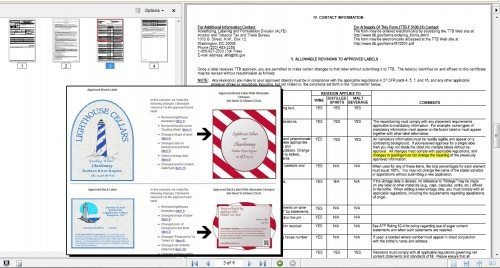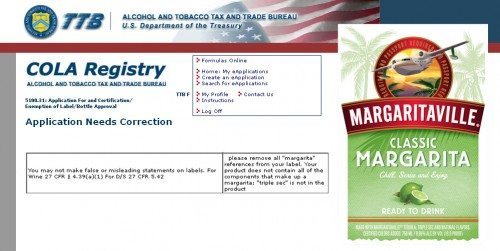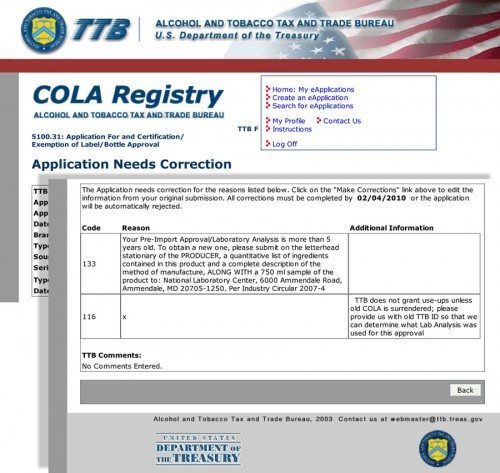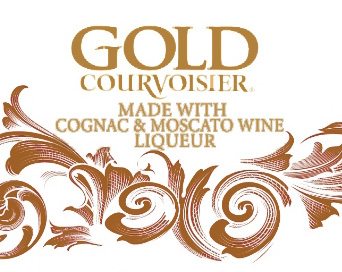Moscato is so very popular it can no longer stay contained within the wine context. Here it is — in a liqueur. The product is Courvoisier Gold – Cognac & Moscato. It is classified as a liqueur, made in France, and imported by Jim Beam. This seems like an important approval because it was not so very long ago that TTB/ATF frowned upon varietal terms — when used on spirits labels — and even when the spirit was made almost entirely from the named grape. For example, it was very common in the 1990s for ATF to say that varietal terms should not be shown, or should not be prominent, on grappa labels, because varietal characteristics are subtle and are not likely to survive past distillation. It looks like it took Beam many months to get this approval. The application went in on March 5, 2012 and did not get approved until more than three months later. It must be a pretty special grape if it’s the subject of not only a bunch of rap songs, but also a few memes: problem, freshman, classy, cat.
Continue Reading Leave a Commentpolicy
Distilled Beer

Q: What do you call spirits distilled from beer? A: Not “Spirits Distilled from Beer.”
Every now and then we see a “Bierschnapps” or a “spirit distilled from beer.” But even though beer is the main ingredient, most of the U.S. approvals seem to avoid any reference to “beer” or “bier.” It seems that TTB is not in favor of spirits labels that refer to beer. In the above example, Woodstone Microspirit seems to be, pretty much, just spirits distilled from beer. Even though the producer probably wanted to describe it as “bierschnapps” on the label, the main description is “Spirits Distilled from Grain and Hops.” The producer, back in 2008, set forth his frustrations here:
Beer Schnapps as a label has not been approved by the TTB for 4 months 3 tries and counting, the formula from the local microbrewery was accepted on the 2nd time through. Its been over 2 years so far and it is fighting me every step of the way. … We are now re-submitting the product with a fanciful name and not calling the product beer schnapps at all.
TTB seems to have allowed a reference to ale but not beer. Classick is another example of a bierschnapps. I have not been able to...
Continue Reading Leave a CommentYour New Friend, ARTAL

In early July TTB announced a massive and important change to the COLA system. TTB greatly expanded the “Allowable Revisions to Approved Labels” (hereinafter “ARTAL,” as on page 3 of the new 4-page COLA form). TTB began laying the groundwork for big “streamlining” changes in early 2012, as summarized here. Although some of the ideas seemed very modest as of then, the streamlining train clearly picked up momentum in the next few months. It seems entirely possible that some of the new changes could or should cut a very large percentage of the more than 10,000 labels submitted to TTB every month. Compared to a few years ago, it is quite amazing that the lighthouse label on the left (above) could change to something as different-looking as the striped label on the right — without any need for a new COLA. The TTB ID number on this label, for example, shows that TTB received at least 671 label applications on just one day in April 2012 — to say nothing about the labels submitted via paper. That should not happen anymore. Instead, applicants should get familiar with ARTAL. It can eliminate lots of waiting, expense, frustration, inconsistent determinations, TTB work and applicant work. In my view, the biggest changes to ARTAL are these....
Continue Reading Leave a CommentGluten Free Ruling

TTB announced a big policy change — about gluten free — just before the Memorial Day holiday weekend. For many years before the announcement, plenty of companies have tried to make “gluten free” claims, but we still didn’t see any approved TTB labels referring to “gluten free.” A few weeks back, we thought we had one, when we heard a lot of buzz about Omission beer as above. But alas, even the Omission label has had a big omission when it comes to this particular claim. All this is about to change in a big way, as result of this TTB Ruling, released late last week. As a result, we may begin to see various gluten free claims on TTB labels in the very near future. To show the earlier TTB policy, a fairly recent TTB rejection is here, and it may help explain why Widmer did not come out and say it louder or earlier. TTB’s caution may well have been justified; Brewbound has explained: “The release of Omission Beer comes just a few months after a study published in the Journal of Proteome Research found that eight commercial beers currently labeled as ‘gluten-free’ contained as much gluten as regular beer.” Brewbound further explained that there are plenty of other beers that seek...
Continue Reading Leave a CommentTags: policy, rejections, therapeutic
The Triple Sec Lobby

The highly secretive and powerful Triple Sec lobby has struck again — this time to require at least one drop of triple sec in certain alcohol beverages. Google it as much as you wish, and you will find little about this uber-secret institution, rumored to have strong ties leading all the way back to France. That’s because it’s secret. Some even say that Sen. John Kerry, with his thinly disguised sympathies for many things French, is Triple Sec’s man in Washington. On a more serious note, for many years, TTB has required at least some triple sec in products that purport to be margaritas. The policy is here, at page 13 (scroll down to Margarita). The policy is in TTB’s “Beverage Alcohol Manual” for spirits. The BAM can be a handy resource to explain and supplement the regulations. Sometimes, as here, it goes considerably beyond what the law or regulations say. In this particular case, it seeks to mandate that every margarita must have: “Tequila, triple sec and lime or lemon juice or oil or natural lime or lemon flavor.” Here is a recent example of TTB seeking to enforce the rule. Does such a rule make any sense in this day and age of scarce resources? What is the worst that...
Continue Reading Leave a CommentTags: policy, rejections
The Five Year Rule

Be careful about the five year rule as above and here. The rule says TTB formulas expire five years after approval. Not all formulas. Just the ones for imported products such as vodka, sake, and liqueur for example. This is in substantial contrast with TTB label approvals, permits, and domestic formulas. Generally speaking, they don’t expire unless the applicant changes something.
In our experience, TTB tends to explain the expiration date on the relevant formula approvals, but not in the regulations or widely elsewhere. An example is here. It can come as an unpleasant surprise, if you are seeking a new label approval more than five years after issuance of the formula approval, as in the case above. In the time period about 5-8 years ago, TTB would frequently allow a use-up in some cases where the formulas was expired. But, as suggested above, use-ups are much harder to get, in more recent years.
Continue Reading Leave a Comment

